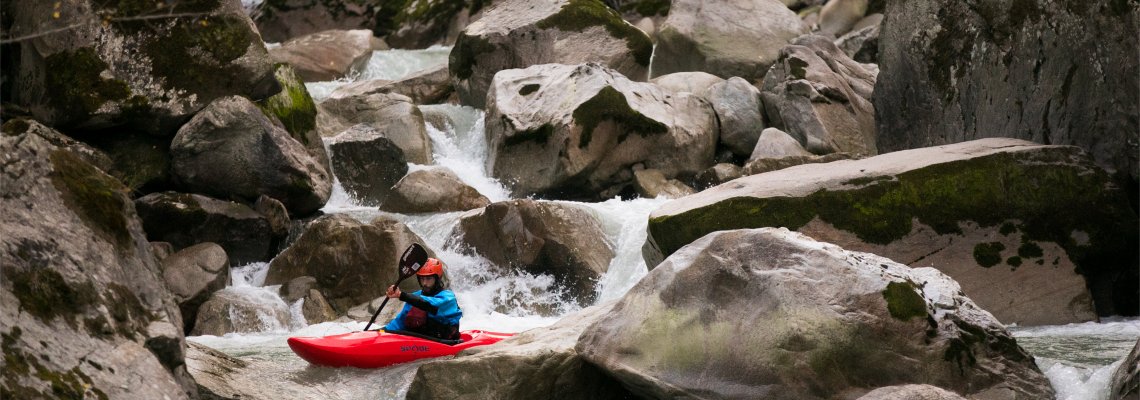The Tyrolean government makes the impossible possible in issuing a permit that contradicts itself. The nature conservation permit for the Tumpen-Habichen hydropower plant certifies itself that it should not have been issued.
It literally says:
The Achstürze section of the Ötz River is worth protecting, sensitive and unique.
„All in all, also taking into account the required fish migration aid, the realisation of the Tumpen-Habichen hydropower plant thus means a massive and long-term impairment of a section of the largest glacial river in Austria (in its estuary area) that is very sensitive, unique and worthy of protection. These serious impairments of nature conservation interests must be contrasted on the other hand with public interests in the realisation of the Tumpen-Habichen hydropower plant. In order to issue the requested nature conservation permit for the Tumpen-Habichen power plant there need to be massive and long-term public interests in favour of the realisation of the project due to the undisputedly strong and lasting nature conservation impairments.“ (p. 69)
The assessment then states on the subject of ‚overriding public interest‘:
There is little long-term public interest.
„Overall, the current situation had to be assumed and the long-term public interest in the project from the point of view of water and energy management had to be assessed without taking into account other projects concerning the Ötztaler Ache that had not received final approval. This was done accordingly by the water management and the water/energy management experts, as described in section III.4. The unanimous result of these assessments assumes a low long-term public interest from the point of view of these departments. The same applies to the undisputed inadequate utilization of hydropower identified by the official hydraulic engineering expert. In fact there could be full utilisation of the hydropower potential of this project only if the SKW and AK projects were also to be realised. […] In this context, it should also be noted that the projected capacity of 14.48 MW is not based on the available hydropower potential – but in fact has only been determinded to be below 15 MW which is the threshold to require an environmental impact assessment.“ (p.70)
The next paragraph describes how nevertheless a positive nature conservation decision was issued for the project:
But the state government would like to build this power plant anyway.
„However, in the present case, the assessment of an overriding long-term public interests cannot be reduced to the energy, water management or hydraulic engineering perspective alone, but must be seen in a broader social and political context. Reference needs to be made here to the statements in the chapter on energy of the Labour Agreement of the Tyrolean Provincial Government 2013 – 2018, the statements in the set of measures for Tyrol of 24.06.2014 referring to the project in question, the findings in the final positive decision of the Provincial Administrative Court of Tyrol in the water law proceedings, as well as the declaration of intent of the Tyrolean Provincial Government that is based on the above statements.
These agreements of the Tyrolean Provincial Government had to be taken into account by the relevant authority in the decision-making process.“ (S.70)
Therefore there is public interest.
What does that mean? It means that the Tyrolean state government values its political will more highly than expert opinions on nature conservation and energy economics. The ‚relevant authority‘, i.e. the environmental protection department of the Tyrolean government, were told to take the advice of the Tyrolean government’s into account. The decision could never have been positive due to its own argumentation, the nature conservation approval was obviously given by a political instruction of the government.
In Austria’s largest and completely free-flowing glacier river, a hydroelectric power plant is to be built, which would affect species and habitats that are endangered and protected throughout Tyrol, Austria or even Europe – and this despite the fact that the power plant itself is of little public interest according to the nature conservation law decision! This is deliberately done by the provincial government and with the participation of the Tyrolean Green Party.
What now?
In our opinion, this is a simple circumvention of a democratic decision-making process in which the pros and cons are supposed to be weighed against each other according to objective criteria. The public, which under the Aarhus Convention should actually have a right to participate in environmental proceedings, is completely excluded. We have therefore sent an e-mail to the Federal Minister for Climate Protection, Environment, Energy, Mobility, Innovation and Technology, Ms Gewessler. We asked her to make a commitment to
- the country of Austria protecting its natural gems on the way to a climate-friendly energy supply and
- the right of the public to fair and objective environmental proceedings to be implemented in accordance with the Aarhus Convention.
Shortly we will ask you to support our e-mail campaign! More info will follow.
Sources
Naturschutzrechtliche Bewilligung
Arbeitsübereinkommen der Tiroler Landesregierung 2013 – 2018

